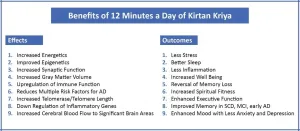(Press-News.org) BOSTON - It's a real-life plot worthy of a classic spy novel: Researchers at Massachusetts General Hospital (MGH), the Dana-Farber Cancer Institute and other Boston-area research centers are turning the tables on glioblastomas, the most devastating and aggressive form of brain cancer, by transforming a type of cell that normally protects tumors and inhibits effective drug therapy into a stone-cold glioblastoma killer.
Glioblastoma, a type of brain tumor, is rapidly fatal: Most patients die within two years of diagnosis despite aggressive therapies such as brain surgery, whole-brain radiation and chemotherapy.
Despite hopes that a class of drugs known as immune checkpoint blockers (ICBs) - drugs that have revolutionized the treatment of patients with malignant melanoma, non-small-cell lung cancer, and other solid tumors - could also benefit patients with glioblastoma, ICBs have not been effective against the disease in clinical trials to date.
ICBs work by removing the brakes on the immune system, allowing previously inactive immune cells to recognize, attack and destroy mutated, cancerous cells while causing minimal damage to the normal tissues.
But as Rakesh K. Jain, PhD, director of the Edwin L. Steele Laboratories in the Department of Radiation Oncology at MGH, and colleagues show in a study published in END
Tumor-promoting immune cells retrained to fight most aggressive type of brain cancer
Regulatory T cells in the brain can be reprogrammed from guarding glioblastoma tumors to attacking them from within
2021-05-11
ELSE PRESS RELEASES FROM THIS DATE:
How one of the oldest natural insecticides keeps mosquitoes away
2021-05-11
DURHAM, N.C. -- With mosquito season upon us, people are stocking up on repellents to prevent itchy bites. Bug repellents are important because they don't just protect against the buzzing, blood-sucking little pests -- they also safeguard against the diseases they carry, which kill some 700,000 people worldwide each year.
Surprisingly, despite widespread use, no one understood exactly how most mosquito repellents keep the insects away. Now researchers are starting to uncover the first pieces of the puzzle.
A new study has identified a scent receptor in mosquitoes that helps them sniff out and avoid trace amounts of pyrethrum, a plant extract used for centuries to repel biting insects.
One ...
Best practices to prevent the federal government from blowing its technology budget
2021-05-11
INFORMS Journal Manufacturing & Service Operations Management Study Key Takeaways:
The study looked at archival data on 240 U.S. federal government technology programs across 24 federal agencies.
Researchers found that the practice of moving baseline targets is a key driver in continually increasing budgets for federal government technology programs.
The componentization of a program into smaller work units and increasing the level of competency in program management can dampen this increase, resulting in significant cost savings.
CATONSVILLE, MD, May 11, 2021 ...
People living with HIV more likely to get sick with, die from COVID-19
2021-05-11
HERSHEY, Pa. -- Over the past year, studies have revealed that certain pre-existing conditions, such as cancer, diabetes and high blood pressure, can increase a person's risk of dying from COVID-19. New research shows that individuals living with human immunodeficiency virus (HIV) and acquired immune deficiency syndrome (AIDS) -- an estimated 38 million worldwide, according to the World Health Organization -- have an increased risk of SARS-CoV-2 infection and fatal outcomes from COVID-19.
In a new study, published in Scientific Reports, Penn State College of Medicine researchers found that people living ...
Newly described horned dinosaur from New Mexico was the earliest of its kind
2021-05-11
A newly described horned dinosaur that lived in New Mexico 82 million years ago is one of the earliest known ceratopsid species, a group known as horned or frilled dinosaurs. Researchers reported their find in a publication in the journal PalZ (Paläontologische Zeitschrift).
Menefeeceratops sealeyi adds important information to scientists' understanding of the evolution of ceratopsid dinosaurs, which are characterized by horns and frills, along with beaked faces. In particular, the discovery sheds light on the centrosaurine subfamily of horned dinosaurs, of which Menefeeceratops is believed to be the oldest member. Its remains offer a clearer picture of the group's evolutionary path ...
Space-based system can provide seismic monitoring for large earthquakes and tsunamis
2021-05-11
Researchers have developed a global earthquake monitoring system that uses the Global Navigational Satellite System (GNSS) to measure crustal deformation.
The monitoring system within seconds can rapidly assess earthquake magnitude and fault slip distribution for earthquakes of magnitude 7.0 and larger, making it a potentially valuable tool in earthquake and tsunami early warning for these damaging events, Central Washington University geophysicist Timothy Melbourne and colleagues report in the Bulletin of the Seismological Society of America.
GNSS can potentially characterize a large earthquake much more rapidly than the global seismic network, ...
COVID-19 alters gray matter volume in the brain, new study shows
2021-05-11
Covid-19 patients who receive oxygen therapy or experience fever show reduced gray matter volume in the frontal-temporal network of the brain, according to a new study led by researchers at Georgia State University and the Georgia Institute of Technology.
The study found lower gray matter volume in this brain region was associated with a higher level of disability among Covid-19 patients, even six months after hospital discharge.
Gray matter is vital for processing information in the brain and gray matter abnormality may affect how well neurons function and communicate. The study, published in the May 2021 issue of Neurobiology ...
Report: 'Safe System' approach could dramatically reduce road deaths while improving equity
2021-05-11
A new approach to road safety that relies on design and engineering principles--the "Safe System" approach--could lead to dramatic reductions in vehicle-related deaths and injuries if implemented in the U.S., according to a report from a consortium of experts convened by researchers at Johns Hopkins Bloomberg School of Public Health and the Institute of Transportation Engineers.
The Safe System approach engineers road systems so that they are safe when used intuitively, the way people tend to use them. A Safe System minimizes the chances for mistakes by drivers, pedestrians, and bicyclists, and reduces the intensity ...
A personalized anti-cancer vaccine that works in mice
2021-05-11
Marie-Claude Bourgeois-Daigneault and her team at the CRCHUM are using mice to show how a combination of peptides and oncolytic viruses, used as an adjuvant, can provide effective immunization against cancer.
In her laboratoryat the University of Montreal Hospital Research Centre (CRCHUM), Marie-Claude Bourgeois-Daigneault and a team of scientists usually modify viruses to make them specific to the cells of a tumour.
Once in the patient's body, these viruses, called oncolytic viruses, infect and specifically destroy the cancer cells without touching healthy cells. These viruses can even stimulate the immune system so that it is better armed to recognize and kill malignant cells. This is immunotherapy.
In a study published in Nature Communications, the scientific team at the University ...
Now is the time to think about reintroducing jaguars into the US
2021-05-11
NEW YORK (May 11, 2021) - A group of scientists say now is the time to talk about reintroducing jaguars (Panthera onca) into the U.S.
In a study published today in the journal Conservation Science and Practice, the authors provide a prospective framework for this effort and describe "righting a wrong" done to "America's Great Cat" in the Southwest more than 50 years ago. The big cats lived for hundreds of years in the central mountains of Arizona and New Mexico but were driven to local extinction by the mid-20th century, in part because of killing by government hunters.
Authors of the study include a diverse set ...
Meditative practice and spiritual wellbeing may preserve cognitive function in aging
2021-05-11
Amsterdam, May 11, 2021 - It is projected that up to 152 million people worldwide will be living with Alzheimer's disease (AD) by 2050. To date there are no drugs that have a substantial positive impact on either the prevention or reversal of cognitive decline. A growing body of evidence finds that targeting lifestyle and vascular risk factors have a beneficial effect on overall cognitive performance. A new review in the Journal of Alzheimer's Disease, published by IOS Press, examines research that finds spiritual fitness, a new concept in medicine that centers on psychological and spiritual wellbeing, and Kirtan Kriya, a simple 12-minute meditative practice, may reduce multiple risk factors for AD.
"The key point of this review is that making a commitment ...
LAST 30 PRESS RELEASES:
Wildfire smoke linked to rise in violent assaults, new 11-year study finds
New technology could use sunlight to break down ‘forever chemicals’
Green hydrogen without forever chemicals and iridium
Billion-DKK grant for research in green transformation of the built environment
For solar power to truly provide affordable energy access, we need to deploy it better
Middle-aged men are most vulnerable to faster aging due to ‘forever chemicals’
Starving cancer: Nutrient deprivation effects on synovial sarcoma
Speaking from the heart: Study identifies key concerns of parenting with an early-onset cardiovascular condition
From the Late Bronze Age to today - Old Irish Goat carries 3,000 years of Irish history
Emerging class of antibiotics to tackle global tuberculosis crisis
Researchers create distortion-resistant energy materials to improve lithium-ion batteries
Scientists create the most detailed molecular map to date of the developing Down syndrome brain
Nutrient uptake gets to the root of roots
Aspirin not a quick fix for preventing bowel cancer
HPV vaccination provides “sustained protection” against cervical cancer
Many post-authorization studies fail to comply with public disclosure rules
GLP-1 drugs combined with healthy lifestyle habits linked with reduced cardiovascular risk among diabetes patients
Solved: New analysis of Apollo Moon samples finally settles debate about lunar magnetic field
University of Birmingham to host national computing center
Play nicely: Children who are not friends connect better through play when given a goal
Surviving the extreme temperatures of the climate crisis calls for a revolution in home and building design
The wild can be ‘death trap’ for rescued animals
New research: Nighttime road traffic noise stresses the heart and blood vessels
Meningococcal B vaccination does not reduce gonorrhoea, trial results show
AAO-HNSF awarded grant to advance age-friendly care in otolaryngology through national initiative
Eight years running: Newsweek names Mayo Clinic ‘World’s Best Hospital’
Coffee waste turned into clean air solution: researchers develop sustainable catalyst to remove toxic hydrogen sulfide
Scientists uncover how engineered biochar and microbes work together to boost plant-based cleanup of cadmium-polluted soils
Engineered biochar could unlock more effective and scalable solutions for soil and water pollution
Differing immune responses in infants may explain increased severity of RSV over SARS-CoV-2
[Press-News.org] Tumor-promoting immune cells retrained to fight most aggressive type of brain cancerRegulatory T cells in the brain can be reprogrammed from guarding glioblastoma tumors to attacking them from within



